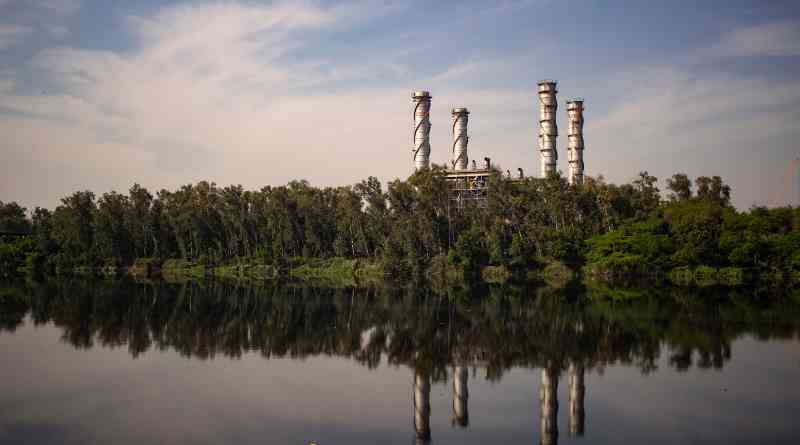A Closer Look at the Camp Lejeune Contamination-Related Illnesses
Are you aware of the hidden dangers lurking within the water you rely on daily? The story you’re about to unwind is a startling revelation about the Camp Lejeune contamination-related illnesses. It’s a stark reminder of how unsuspecting people can be affected by something as essential as water.
Camp Lejeune contamination is a crisis that has deeply impacted countless lives. It is a tale of military families, soldiers, and civilians who unknowingly consumed water tainted with toxic chemicals for decades.
This article sheds light on the past, present, and future of Camp Lejeune contamination victims. It’s about recognizing a problem that’s not just a historical page but a reality for many.
Understanding Camp Lejeune Water Contamination
Camp Lejeune, a prominent U.S. Marine Corps base in North Carolina, unwittingly became a site of environmental catastrophe. The source of this disaster was contaminated drinking water. During the 1950s through the 1980s, personnel stationed at the base were exposed to toxic chemicals seeping into their water supply.
At the heart of the contamination were dangerous compounds like trichloroethylene (TCE), tetrachloroethylene (PCE), and benzene, known for their harmful effects on health. The contamination went undetected for years, and during this time, military families, soldiers, and civilian employees were consuming this tainted water daily.
The outcomes of this exposure have been significant. The long-term effects of this exposure are still unfolding, as the latency period for some illnesses can be decades.
Cancer and Camp Lejeune
One of the most distressing outcomes of the Camp Lejeune water contamination is the alarming rise in cancer cases. It was among those who lived or worked at the base during the years.
The toxic chemicals, like TCE and benzene, have been linked to various forms of cancer, including leukemia, breast cancer, and kidney cancer. It’s difficult for individuals to connect their health issues to the contaminated water they once consumed.
As a result, the symptoms of Camp Lejeune water contamination are often insidious. These symptoms range from unexplained fatigue and weight loss to more severe conditions like skin rashes and neurological problems.
Many who experienced these symptoms had no idea their health was compromised by the water they trusted. The concern is that other health problems like aplastic anemia, multiple myeloma, scleroderma, and hepatic steatosis can accompany these symptoms.
Similarly, TorHoerman Law points out a growing body of evidence linking the toxic chemicals to these cancers. Researchers are still working on solidifying these connections as new diseases are added to the list of diseases, like colorectal cancer, lupus microcephaly, etc.
It highlights the importance of acknowledging the link between contamination and the severe health issues experienced by military personnel. Understanding this link is crucial in seeking justice and support for those affected by this tragic chapter in Camp Lejeune’s history.
Reproductive Health Issues
For women, the contaminants have been linked to an increased risk of miscarriages and stillbirths. There have been cases of children born with birth defects. These include heart defects and neural tube defects in babies of mothers who were exposed to contaminated water during pregnancy.
Men who lived or served at Camp Lejeune have also faced reproductive health challenges. The chemicals in the water have been associated with reduced sperm quality and fertility issues, making it harder for some couples to conceive.
Neurological Disorders
TCE is known to have neurotoxic properties, meaning it can harm the nervous system. According to Parkinson’s Foundation, it can harm the brain and leave people with motor deficiencies. Another crucial finding was discovered by research published in JAMA Neurology. It compared the medical histories of veterans from Camp Lejeune with those of over 73,298 veterans from Camp Pendleton.
As per the records, Parkinson’s disease affected 279 veterans from Camp Lejeune and 151 veterans from Camp Pendleton. It was ahead with a prevalence of 0.31 and 0.21 percent, respectively. It showed that individuals who resided at or served at Camp Lejeune have reported more of this disease.
These may also result in multiple sclerosis and amyotrophic lateral sclerosis (ALS), also known as Lou Gehrig’s disease. These disorders affect the brain and the nervous system, leading to many symptoms that can severely impact one’s quality of life.
Chronic Illnesses and Autoimmune Disorders
Camp Lejeune water contamination has left a lasting impact in the form of chronic illnesses and autoimmune disorders. These conditions have brought prolonged suffering to many who once called the base home.
Exposure to TCE and benzene has been associated with a higher risk of developing chronic illnesses and autoimmune disorders. For instance, according to NCBI, studies have revealed that benzene is one of the main causes of adult leukemia.
Exposure to benzene causes bone marrow depression, which frequently manifests as clinically low peripheral blood cell levels. Leukemia may become considerably more prevalent because of how it affects these cells.
Benzene finds applications in various products like plastics, polymers, detergents, insecticides, and rubbers, thereby posing environmental and workplace exposure risks. Consequently, it’s crucial to raise awareness about the potential harm it can inflict on individuals.
Other illnesses encompass various health issues, including rheumatoid arthritis, lupus, and fibromyalgia. These conditions can result in persistent pain, fatigue, and impaired immune function.
Respiratory and Breathing Problems
These chemicals not only affect water quality but can also vaporize into the air. It means that people in the vicinity could inhale these harmful substances. Prolonged exposure to these airborne toxins has been linked to various respiratory issues.
Individuals exposed to the contaminated air have reported symptoms such as coughing, wheezing, shortness of breath, and chronic bronchitis. For some, these problems have persisted long after leaving Camp Lejeune, affecting their daily lives and overall well-being.
Kidney and Liver Disorders
Many individuals who lived or served at Camp Lejeune have faced kidney problems. It includes conditions like chronic kidney disease and kidney cancer. The toxins in the water can impair kidney function and lead to the development of these debilitating conditions.
Liver disorders, too, have been a significant concern. Contaminant exposure has been associated with liver damage and an elevated risk of liver cancer. These conditions can have far-reaching health implications, impacting overall well-being and quality of life.
Due to the damage these chemicals entail, authorities are now taking steps to counter them. For instance, most of PCE’s uses in business and industry are proposed to be banned to reduce the acknowledged high danger. These include their production (including importation), distribution, and processing, states Federal Register.
Also, EPA is recommending mandating a PCE workplace chemical protection program. It contains specifications to avoid direct skin contact and adhere to an inhaled dosage limit. Such steps are essential to safeguard the well-being of people who deal with these types of chemicals unknowingly.
Urgent Call for Action on Camp Lejeune
The toxic chemicals in the water have left a trail of suffering from cancer to reproductive issues, neurological disorders, and more. Understanding and addressing the health challenges faced by those exposed to these environmental toxins is vital.
It’s a call to action for rigorous regulations, ongoing research, and comprehensive support systems. The people affected by the Camp Lejeune contamination deserve justice and assistance in their journey towards better health.
For more info Click here




